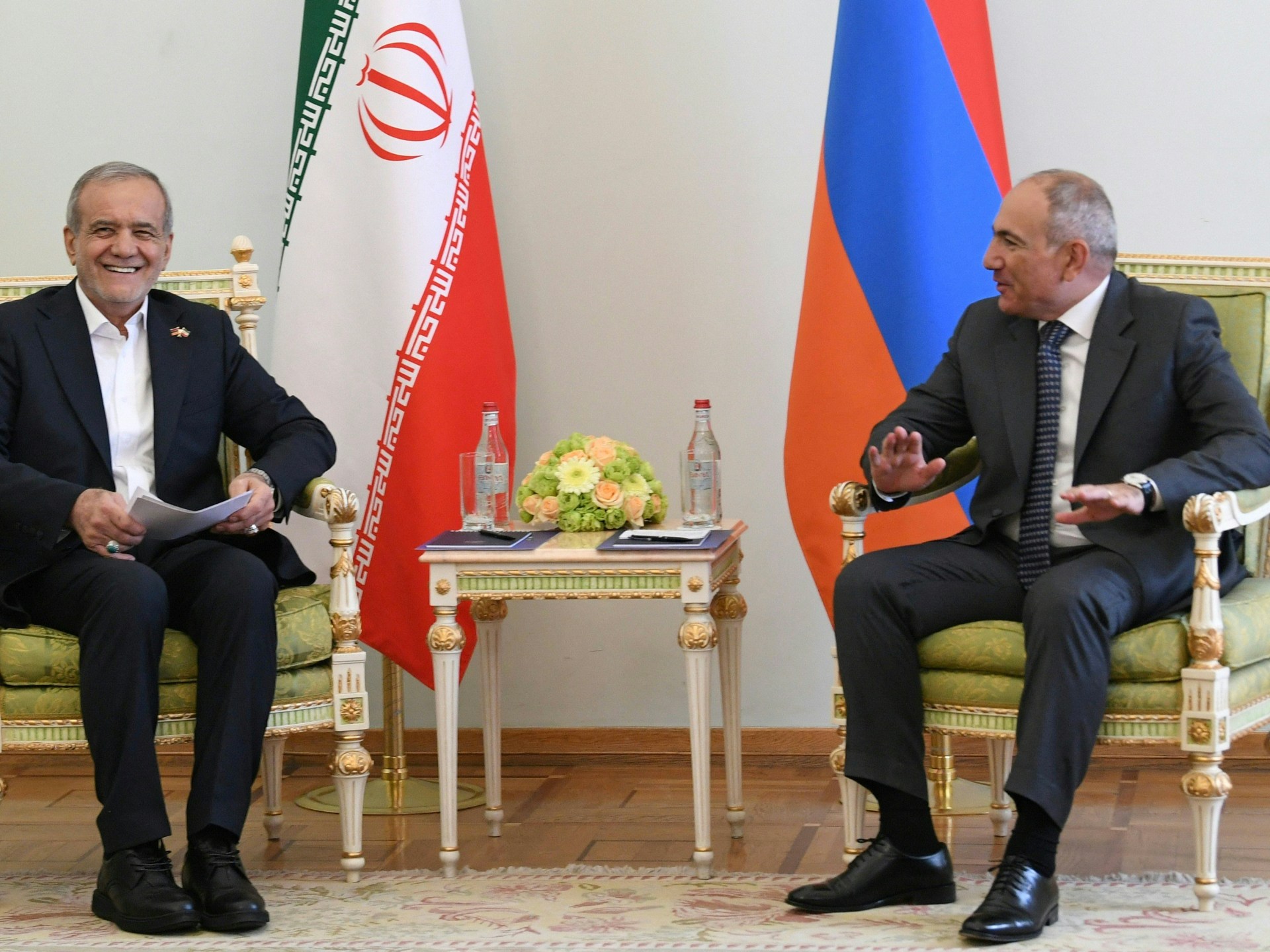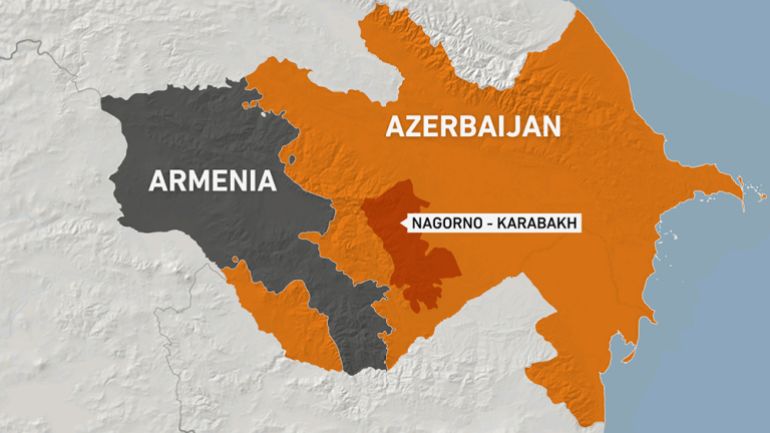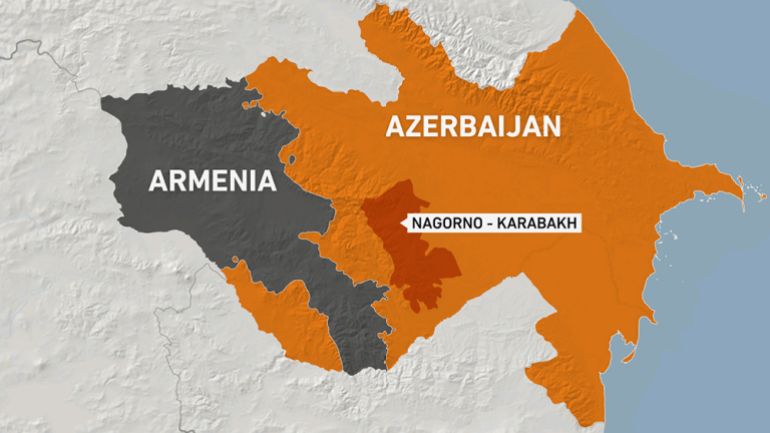Armenia reassures visiting Iran leader it will control Azerbaijan corridor | International Trade News
Iranian President Masoud Pezeshkian says in Yerevan that ‘governance in the Caucasus region must remain Caucasian’.
Armenian Prime Minister Nikol Pashinyan has told Iranian President Masoud Pezeshkian that a planned corridor linking Azerbaijan with its exclave would be under Armenian control, days after Iran said it would block the project included in a United States-brokered peace accord that puts a potential Washington presence on its doorstep.
“Roads passing through Armenia will be under the exclusive jurisdiction of Armenia, and security will be provided by Armenia, not by any third country,” Pashinyan said at a meeting with Pezeshkian in the Armenian capital Yerevan on Tuesday. He added that the corridor would open new economic perspectives between the two countries, and could offer a rail route from Iran to the Black Sea coast through Armenia.
The land corridor, dubbed the “Trump Route for International Peace and Prosperity” (TRIPP), is part of a deal signed this month in Washington between former foes Armenia and Azerbaijan.
Under the agreement, the US will hold development rights for the proposed route, which would connect Azerbaijan to its Nakhchivan exclave bordering Iran and Turkey.
“Governance in the Caucasus region must remain Caucasian – outsourcing the resolution of Caucasus issues to extra-regional forces will complicate it,” Pezeshkian said during his visit on Tuesday. “Iran’s position has always been to reject any changes to international borders in the Caucasus region.”
Iran has long opposed the planned transit route, also known as the Zangezur corridor, fearing it would cut the country off from Armenia and the rest of the Caucasus while bringing potentially hostile foreign forces close to its borders.
Since the deal was signed on August 8, Iranian officials have stepped up warnings to Armenia, saying the project could be part of a US ploy “to pursue hegemonic goals in the Caucasus region”.
The proposed corridor has been hailed as beneficial by other countries in the region, including Russia, with which Iran has a strategic alliance alongside Armenia.
Armenia and Azerbaijan have fought a series of wars since the late 1980s when Nagorno-Karabakh, a region in Azerbaijan that had a mostly ethnic Armenian population at the time, broke away from Azerbaijan with support from Armenia. Azerbaijan Baku took control of the territory in a military operation in 2023, leading to an exodus of the ethnic Armenian population.
Armenia last year agreed to return several villages to Azerbaijan in what Baku described as a “long-awaited historic event”.


